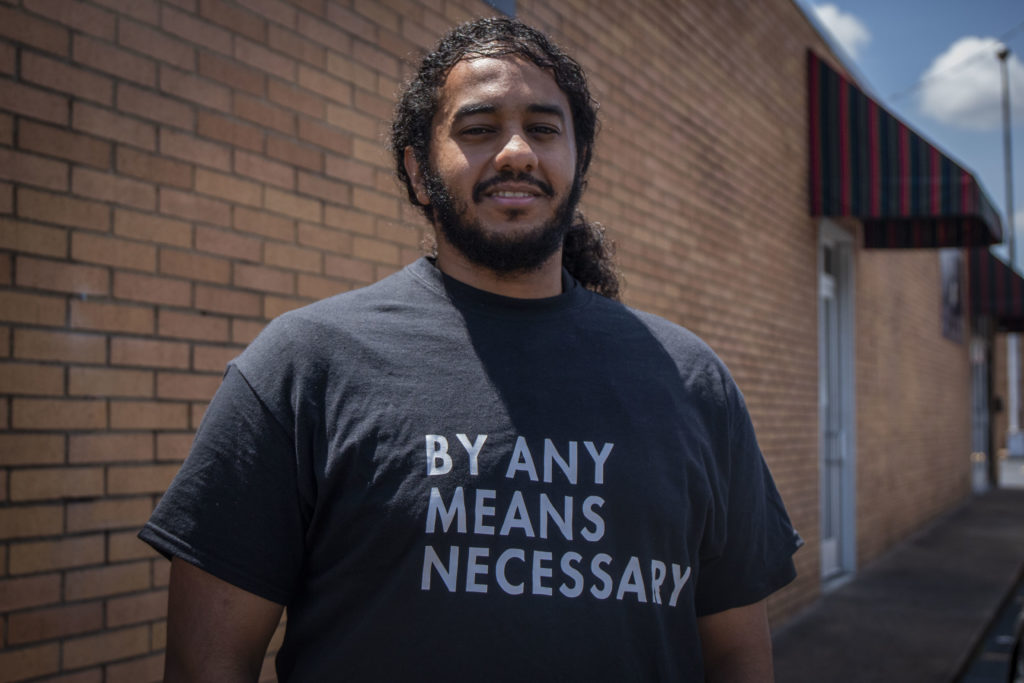
Since June, many Americans are quickly trying to study up on racism and how disparities have lasted for so long. But for one Somali American in Nashville, that education started in his youth, as he grew up in the James Cayce Homes.
Now, Zacharias Sayid is trying to educate his peers and elders about the systems that create roadblocks for African Americans. He immigrated to Nashville in 1996 when he was 3 years old and graduated from Tennessee State University.
This is one of several stories about how Black Nashvillians are processing the current movement in our WPLN News series Breaking Points.
Interview Highlights
‘You weren’t allowed to move into the suburbs’
I would always say, “How are immigrants opening stores in the hood? Why aren’t the black people opening stores in the hood?” Because the banks won’t even give the black people loans. The banks would give the Asian community and the Arab community loans upon loans to open nail salons and alcohol shops in the hood. So that’s when I realized that there’s a whole system that’s making sure to keep African Americans in a certain position. And that’s what I try to educate my people more on it.
Most of my friends were African Americans growing up, so I understood where they were coming from. I understood a lot of the stuff that was going on in the hood was not self-inflicted. And then when you go to college — and I went to an HBCU — you learn more about Jim Crow, about gerrymandering, about redlining.
A lot of immigrants always say, “How come they didn’t try to get out of this situation? Why did they choose to stay here?” Well, they weren’t given an option. Even when you make it out, you get a degree, you get a good job — you still weren’t allowed to move out of the hood. You weren’t allowed to move into the suburbs.
Finding similarities and differences
Even my parents, they realized there’s a lot of problems in this country. And without African Americans, we wouldn’t be here, nor would we be allowed to just roam around freely.
Our struggles are not the same. You’ve been under 400 years of oppression, slavery, Jim Crow, mass incarceration. And we have our unique struggles. We’ve got to look past that and try to work together and accept each other as the children of Africa. We are the same. And here in America currently in 2020, we will face the same plights, like we all face the same barriers.
In Minnesota, there’s a young Somali man that got killed by the police, like 20 bullets in his body. So if that was a white kid or maybe even if that was an Arab kid, it wouldn’t happen to him because the police would have felt safer seeing a whiter skin. They wouldn’t look for their religion or ethnicity at that moment. But the minute they see someone that’s kind of dark brown, it’s already a threat to them. So I think the Somali community started to realize that.
In search of Black liberation
What we can do right now is just to keep the fight going, not to let up now. Because every time we let up, every time the protests stop, nothing changes. The situation goes back to what it was — more black people are killed by the police.
Black liberation looks like economic freedom. Being given the same opportunities as white people, having our inner-city schools being funded the same way as the suburbs are funded. Also, reparations for the African American community because without reparations, it’s hard for them also to move on. That’s what I personally believe because generational wealth plays a huge role in the success in this country. … I want a Black kid to get the same opportunity that a white kid can get growing up.

